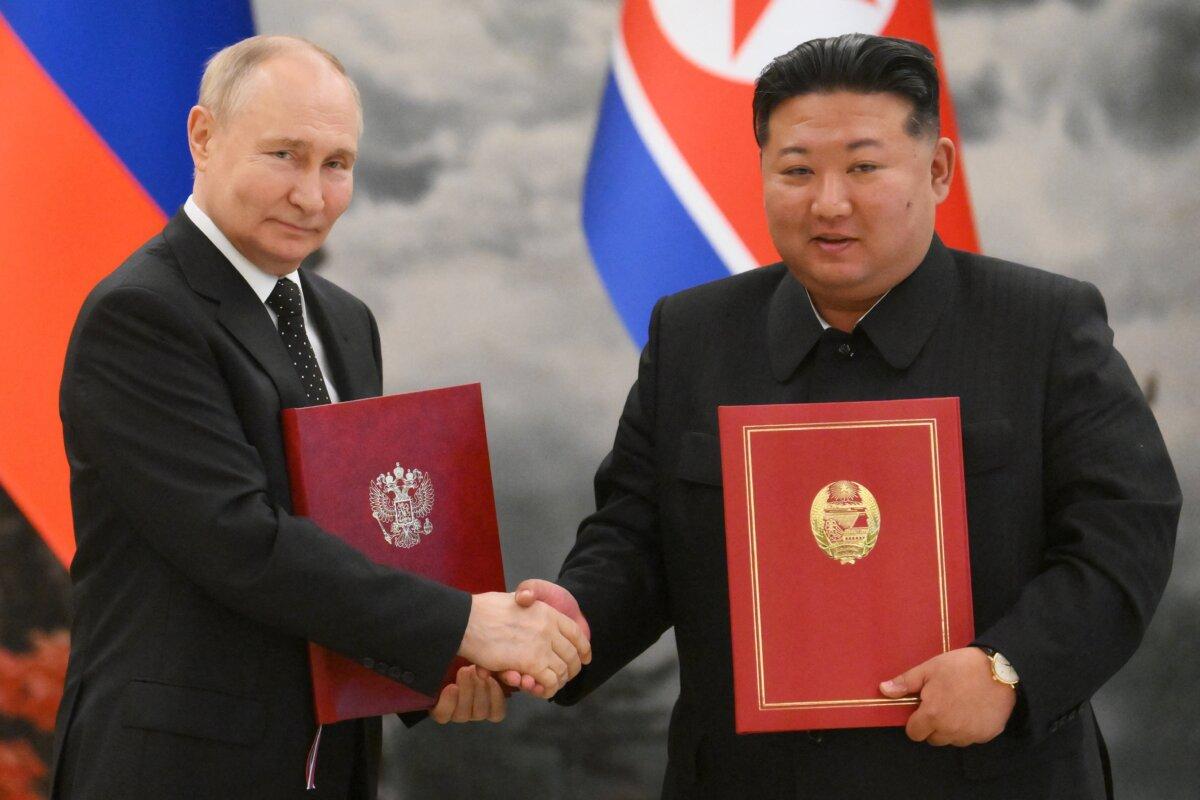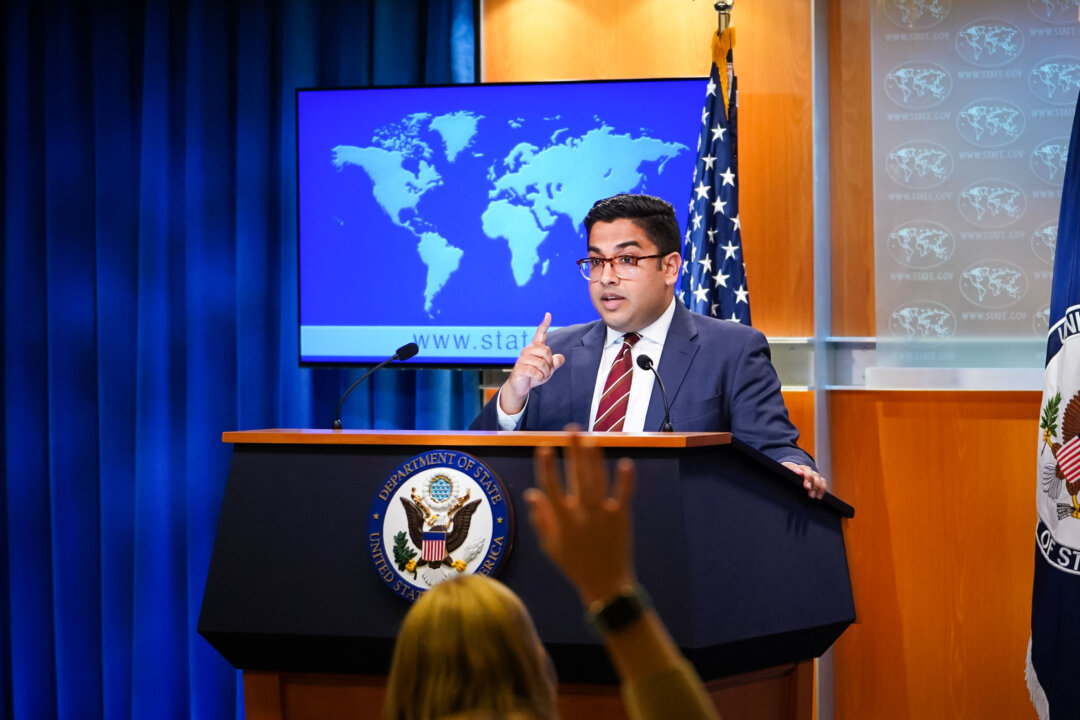Moscow and Pyongyang have neither confirmed nor denied the presence of North Korean troops in the Russian border region.
North Korean military personnel are fighting alongside their Russian counterparts in Russia’s western Kursk region, parts of which Ukrainian forces overran this summer in a cross-border offensive, the U.S. State Department has announced.
“I can confirm that over 10,000 [North Korean] soldiers have been sent to eastern Russia,” State Department spokesperson Vedant Patel said at a Nov. 12 press briefing.
He added that most of these had been deployed to Russia’s western Kursk region, where “they have begun engaging in combat operations with Russian forces” against Ukrainian troops.
“The United States is consulting closely with our allies and partners and other countries in the region on the implications of this,” Patel told reporters.
In early August, Kyiv launched a surprise cross-border offensive into Kursk, where Ukrainian forces managed to wrest control over a strip of Russian territory.
Since then, Russian ground forces backed by aircraft and artillery have succeeded in recapturing most—but not all—lost territory.
In its most recent assessment, Russia’s defense ministry claimed that Ukraine had lost more than 31,000 troops—and vast amounts of military hardware—in Kursk since it began its cross-border offensive more than three months ago.
The Epoch Times could not independently verify the Russian ministry’s claims.

On Nov. 13, South Korea’s national intelligence agency echoed Washington’s claim that North Korean troops were present—and actively fighting—in Kursk.
“The National Intelligence Service estimates that North Korean troops dispatched to Russia have moved to the Kursk region over the past two weeks,” the agency said in a statement.
It further asserted that North Korean troops in Kursk were now actively engaged in combat operations alongside Russian forces.
Last month, South Korea released satellite imagery purportedly showing the transfer of thousands of North Korean military personnel into eastern Russia.
When asked about the satellite images, Russian President Vladimir Putin described them as a “serious matter.”
“If images exist, they indicate something,” he told reporters on Oct. 24 without elaborating.
Earlier this month, the Pentagon appeared to suggest that 10,000 North Korean troops were currently present in Kursk but declined to confirm Ukrainian claims that they were actively engaged in combat.
“All indications are that they [North Korean troops] will provide some type of combat or combat support capability,” Pentagon spokesman Air Force Maj. Gen. Pat Ryder told reporters on Nov. 4.
Since then, Moscow and Pyongyang have neither confirmed nor denied the allegations.
North Korean state media reported on Nov. 12 that Pyongyang had ratified a treaty for mutual defense that was initially signed this summer by Putin and Kim Jong Un, North Korea’s leader.
According to Russia’s state-run TASS news agency, Putin signed the law ratifying the treaty on Nov. 9, with the North Korean leader following suit two days later.
TASS went on to report that the treaty “provides for the immediate provision of military and other assistance if one of the parties is subjected to an armed attack in accordance with Article 51 of the UN Charter.”
The two leaders initially signed what they have described as a “strategic partnership” treaty during a visit by Putin to Pyongyang in June.
After the signing ceremony, Putin told reporters that the “groundbreaking” agreement would lay out “comprehensive benchmarks for deepening Russia–North Korea relations in the long term.”
Kim stressed the “peaceful and defensive” nature of the treaty, which, he said at the time, would serve to elevate bilateral ties “to the level of an alliance.”
The North Korean leader also voiced his country’s “unwavering support” for Moscow’s foreign policy, including its ongoing invasion of eastern Ukraine.
Reuters contributed to this report.

